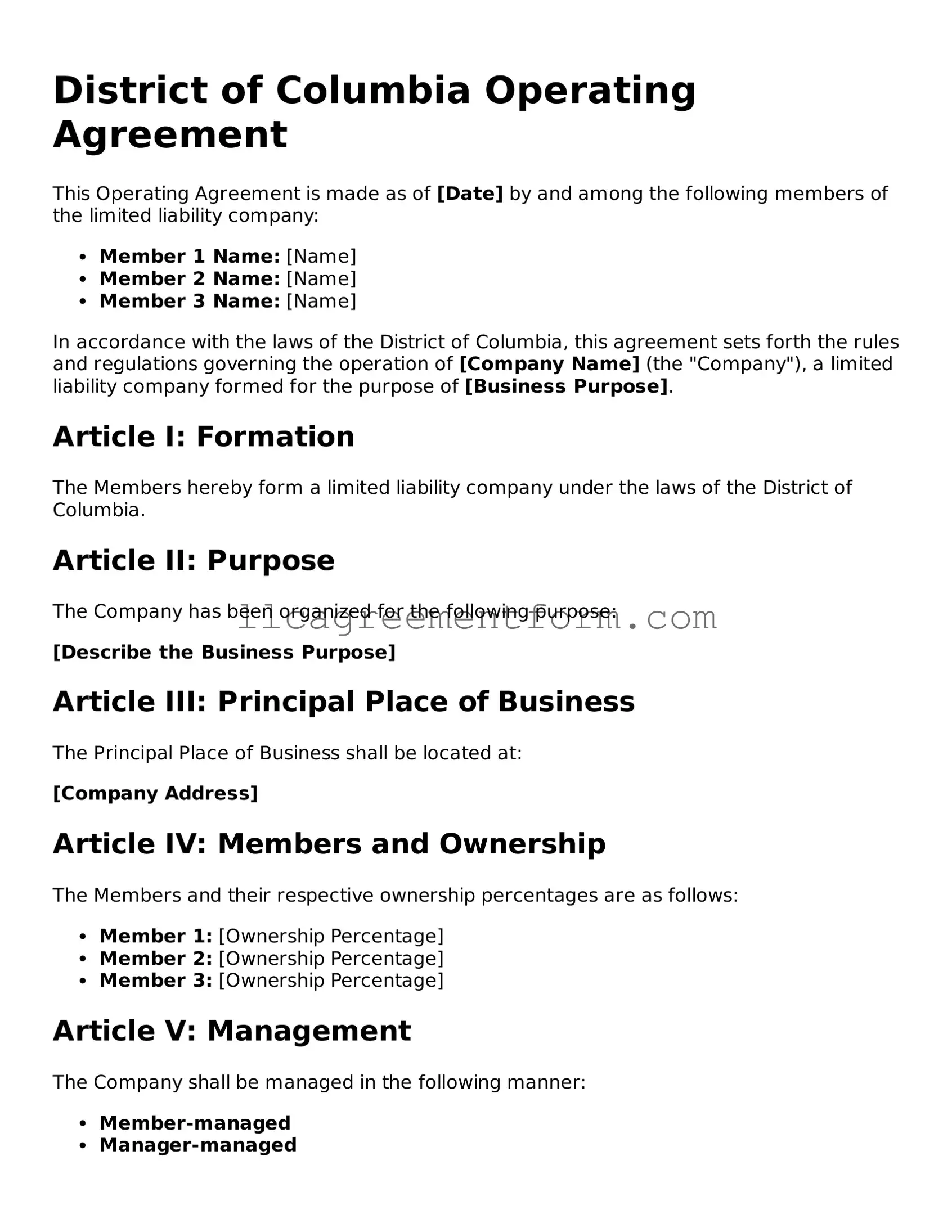Free Operating Agreement Document for District of Columbia
The District of Columbia Operating Agreement form is a crucial document that outlines the management structure and operational guidelines for a limited liability company (LLC) in Washington, D.C. This form helps ensure that all members are on the same page regarding their roles, responsibilities, and rights within the business. By establishing clear rules, the Operating Agreement can prevent misunderstandings and disputes among members.
Ready to get started? Fill out the form by clicking the button below.
Get Operating Agreement Now

Free Operating Agreement Document for District of Columbia
Get Operating Agreement Now
Don’t stop halfway through your form
Finish Operating Agreement online with fast editing and easy download.
Get Operating Agreement Now
or
▼ PDF
